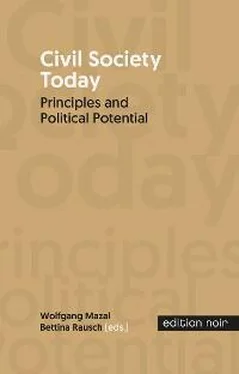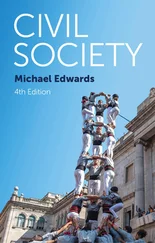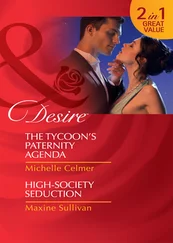Civl society
Здесь есть возможность читать онлайн «Civl society» — ознакомительный отрывок электронной книги совершенно бесплатно, а после прочтения отрывка купить полную версию. В некоторых случаях можно слушать аудио, скачать через торрент в формате fb2 и присутствует краткое содержание. Жанр: unrecognised, на английском языке. Описание произведения, (предисловие) а так же отзывы посетителей доступны на портале библиотеки ЛибКат.
- Название:Civl society
- Автор:
- Жанр:
- Год:неизвестен
- ISBN:нет данных
- Рейтинг книги:4 / 5. Голосов: 1
-
Избранное:Добавить в избранное
- Отзывы:
-
Ваша оценка:
- 80
- 1
- 2
- 3
- 4
- 5
Civl society: краткое содержание, описание и аннотация
Предлагаем к чтению аннотацию, описание, краткое содержание или предисловие (зависит от того, что написал сам автор книги «Civl society»). Если вы не нашли необходимую информацию о книге — напишите в комментариях, мы постараемся отыскать её.
dealing with the theory, history, and philosophical heritage of
the civil society, as well case studies from actual practice.
Civl society — читать онлайн ознакомительный отрывок
Ниже представлен текст книги, разбитый по страницам. Система сохранения места последней прочитанной страницы, позволяет с удобством читать онлайн бесплатно книгу «Civl society», без необходимости каждый раз заново искать на чём Вы остановились. Поставьте закладку, и сможете в любой момент перейти на страницу, на которой закончили чтение.
Интервал:
Закладка:
From the political perspective, the differentiation between free and unfree was an everyday normality, a common political practice. The citizen was usually considered free and could lay claim to a number of civic rights for himself: political participation, acquisition of property, etc. However, these rights usually went hand in hand with duties: military service, political participation in accordance with the valid laws, the obligation to accept a public office, accompanied by the obligation to fulfil public offices to the benefit of the polis for a specific period, etc. On the other hand, those who were considered unfree, especially slaves in the so-called “state of unfreedom”, were granted no personal and political rights. But there were social differences among the unfree members of society, and the spectrum of the different activities and obligations was rather large. On the one hand, there were state slaves (official servants, watchmen, and labourers). On the other hand, there were house slaves, maids and manservants, who carried out a number of duties in the oikos (the household or family property) where they worked as kitchen help, tutors, nannies, family physicians, etc. Women and children also had absolutely no political rights, although the woman’s position varied from polis to polis . The rights – or, more precisely, lack of rights – of guests (the metics ) and foreigners (the xenoi ) were also defined differently in the laws of the individual city states.
In connection with the classical Greek era, it is necessary to bear the following in mind: 6 (i)The dichotomy of the differentiation between “free” and “unfree” was a fact that was socio-politically accepted and unquestioned to a large degree in political practice even though there were occasional discussions about the (possible) justification for this separation in literature and philosophy. (ii)The differentiation between “free” and “unfree”, the designation of the “free citizen” in contrast to the “unfree slave”, not only reflected a formal legal status but also implied an ancient political self-awareness. It is already possible to identify this trace in the works of Aeschylus where the Athenians – after the Persians had asked them for the name of the ruler over the Athenians – were described as free citizens, the slaves of no master, and nobody’s subject. 7 (iii)On the “unfree” side, the slaves worked in a number of areas and relationships, some of them confidential, which did not change the existing legal status in any way except that of the master’s claim of ownership. (iv)Slaves were defenseless to human trafficking; they were regarded as goods, as possessions, and as tools. (v)Unfree (men, women, and children) were not only expropriated legally and politically, but also – from the anthropological-philosophical perspective – in a worse position and seen in a different way than free people.
2. Ancient political theory: Anthropology and participation in the best state
The thoughts of Aristotle form an indispensable – and, in almost all respects, important –component of ancient classical political philosophy. At the same time, he continued to cling to a fundamental differentiation between the free and unfree. In developing and presenting his practical philosophy, he nevertheless deals, in an astute and cautious manner, with the “philosophy of human affairs”, 8which is an inseparable symbiosis of ethics and politics as well as a concrete political anthropology, a political image of man in the broader sense, 9which has received a great deal of approval but also criticism in the course of the history of philosophy and political thought. The central pillars of this political anthropology will be depicted by way of three short points:
(i)In his Politics , Aristotle determines that man is a being that lives a political life by nature; in Old Greek, zôon politikon . However, according to Aristotle, this definition of man as a political being is not actually a unique feature of humans, seeing that, in his eyes, bees and other animals (such as ants, for example) also led their lives in a political manner. 10Aristotle’s definition of man as a zôon politikon is therefore, first and foremost, a biological view that applies to man and his nature – but not exclusively.
(ii)Only Aristotle’s second politico-anthropological definition describes man in a special manner. Man is not only a z ôon politikon , a political being in the broader sense, but – going even further – also a zôon logon echon – a being gifted with reason and language. For Aristotle, language and reason made it possible for man to “have a conception of good and evil, of right and wrong”, be able to enter into a political exchange about this with others, and organise coexistence in this way from a political perspective. 11According to Aristotle, this definition provided the sole foundation for the difference between man and (other) animals.
(iii)The Aristotelian political anthropology positioned man and his lifestyle firmly in a political way of living with other people. The human being is therefore directly dependent on his fellow man for his survival as well as for the good and successful life in different ways. From this viewpoint, man is not only a zôon politikon like other animals – living politically by nature – and also not merely a zôon logon echon – gifted with reason and language – but, going beyond that, also a zôon koinonikon – a “community being” 12who needs the connection to his fellow man just as the individual is needed by the rest of the community. A formal, superficial (political) coexistence, similar to “grazing on the same pasture”, 13is impossible for the life of man according to Aristotelian political anthropology.
Aristotle powerfully records this insight – which is fundamental for everything political – of the indispensable belonging to a community in the centre of the development of his political anthropology in politics: the one – the individual person – who is either unable to participate in forms of community, or who has no need of the community with others because of his individual self-sufficiency, is firstly not part of the state (e.g. the polis ) and secondly therefore either an animal or a god. 14But the wild animal on the one hand and the self-sufficient divinity on the other do not apply to humans and their nature, especially since they are dependent on different forms of community for their lives in many respects.
From an ethical-political perspective, this concept of belonging to a community demands active political involvement and the acceptance of political responsibility on the part of the citizen. Aristotle described this kind of involvement – in addition to other passages in the “Philosophy of Human Affairs” – in Politics VII and VIII where he develops his “best imaginable state”, the so-called “polis as required”. 15In the course of these ethical-political investigations, he initially deals with what he considers the desirable life of the citizen within the political community of this “best imaginable state” that inevitably includes an ethical-political foundation. 16
On the one hand, Aristotle talks about the ethical, as well as political, indispensability of political participation on the part of the citizen within the political community, the politikê koinonia . The political participation is obligatory in this plan for the state 17as only the acceptance of civic duties (e.g. military, administrative, political, juridical, or cultic) could bring about civic rights – in the broader and narrower sense – (e.g. subjective legal claims, leisure, self-interest, self-responsibility for one’s lifestyle, self-fulfilment). This period of essential and required political involvement from the citizen – as well as that needed for the individual care and work for the household and farming community – was described by Aristotle as a time of “non-leisure” ( ascholia ) because it demanded practical activities that the citizen had to fulfil immediately. All of this was completely in the sense of the political autarchy and autonomy of the polis.
Читать дальшеИнтервал:
Закладка:
Похожие книги на «Civl society»
Представляем Вашему вниманию похожие книги на «Civl society» списком для выбора. Мы отобрали схожую по названию и смыслу литературу в надежде предоставить читателям больше вариантов отыскать новые, интересные, ещё непрочитанные произведения.
Обсуждение, отзывы о книге «Civl society» и просто собственные мнения читателей. Оставьте ваши комментарии, напишите, что Вы думаете о произведении, его смысле или главных героях. Укажите что конкретно понравилось, а что нет, и почему Вы так считаете.












